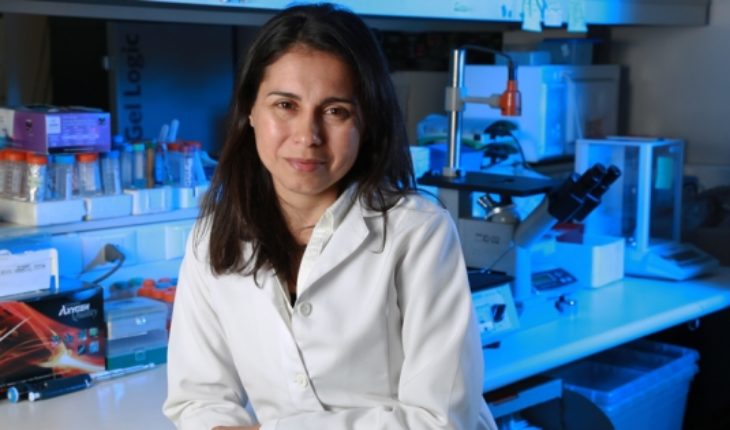The first Chilean test for the rapid detection of five respiratory viruses and the potential severity of the infection, is being clinically evaluated as part of a validation study that will allow its subsequent impl in various health centres in the country. The kit was developed by Susan Bueno, professor at the Pontifical Catholic University of Chile and researcher of the Consortium in Biomedicine, BMRC and the Millennium Institute of Immunology and Immunotherapy, IMII, which won the Avonni Award 2018 in the category of Health , for the invention of this pioneering tool.
The respiratory syncytial virus, influenza, parainfluenza, metapneumovirus and adenovirus are pathogens that affect very often every winter and, thanks to this platform, you will be able to quickly check into nasal secretions. The tool has already been tested technically and clinically in conjunction with UC scientific and medical teams and will begin to be validated in public hospitals in the metropolitan region this winter.
“We are very optimistic about the creation and evaluation of this test, because it has the advantage that would be much easier and cheaper to implement in care centers that do not currently have this type of diagnosis, generating a great impact on the health of our Population. They would decongest emergency services and benefit up to two million patients in the public system, with nearly half a million diagnoses a year. Another great novelty is that the kit includes a severity marker, through which we can identify if there is a more severe respiratory inflammation. This is novel and would complement the diagnosis made by the doctor and better guide the treatment, or to expedite any important clinical decisions, such as referring the patient to hospitalization in a more efficient way, favoring the timely treatment of the most complex cases,” explains Dr. Bueno.
The researcher says that it is hoped to add a diagnosis of respiratory bacteria to the existing technology, which will allow to determine if it is a virus or bacteria that is causing the infection and identify which pathogen it is.
Transfer to the community
The platform is the result of a decade of work and research, which can now be transferred to society, thanks to the work of the BMRC, an initiative funded by Corfo. The purpose of the project is to improve access to clinical diagnoses in the most prevalent winter pathologies, mainly benefiting at-risk populations such as children and older adults.
“After advancing the validation phase during this year, our mission is that for the winter outbreak of 2020 we can already have the kit implemented in several offices in Santiago. And we certainly also hope to be able to reach more regions of the country and thus generate a cross-cutting benefit to the entire national population,” says the researcher.
Rebeca Ibacache, General Manager of the Consortium in Biomedicina, BMRC, also refers to the importance of this platform. “This is a project that is aimed at decongesting the public health system, especially during the weeks of further collapse, when viruses attack more often. At the moment, we are making arrangements with various institutions, including the government, hospitals and offices, and in general terms we have achieved a good reception. We are really motivated by this initiative, which goes hand in hand with the needs of our country and that, due to its quality and usefulness to the population, shows us that today very good science is developing in Chile”, says the representative.
Improving detection
The kit manages to detect pathogens with high specificity and sensitivity, in addition to establishing the severity and future progress of the disease, thanks to the incorporation of a specific marker. Because of these characteristics and speed of detection, the technology could search more serious patients more expeditiously, and identify the specific cause of a respiratory picture. With this information, clinical teams will be able to supplement their medical evaluation by detecting whether an infection requires outpatient follow-up or hospital care, also delivering more accurate treatment, as the case may be. This is very important, as sometimes using antibiotics when the picture actually responds to a viral infection.
“The latter is a problem, as the misuse of these drugs can contribute to significantly reducing the microbiota and generating greater susceptibility to other infections. In the case of viral infections, there is no specific treatment, but having diagnostic clarity and depending on the severity, the doctor may indicate some treatment or drug to decrease inflammation of the airways, thus preventing the patient gets worse,” explains Dr. Susan Bueno.
Another advantage of technology, as the researcher estimates, is its ease of being implemented in primary health services. The methods that currently exist to diagnose respiratory viruses are carried out in hospitals and clinics, according to established parameters, but these mechanisms do not allow to cover all the demand of affected population that it consults. The existence of the kit, on the other hand, will allow to analyze various variables through a sample of nasal secretion, which will be analyzed by experts who are part of the project.
“For all these efforts, we have a multidisciplinary human group. We have a technical laboratory team, in charge of performing all the tests, working with the samples and making the diagnostics. In addition, physicians and pediatricians working in the UC Health Network and Health Center Network participate, with whom we have also developed the severity marker and evaluated various medical samples of pediatric patients, identifying molecules related to a the disease,” says THE BMRC and IMII researcher.
Consortium in Biomedicine
With almost 14 years of existence, the BMRC is a private public entity born the result of a partnership between the Catholic University and companies in the pharmaceutical area, with the mission of carrying out technological research, applied to human health and with high impact on the productive sector.
“From day one, our purpose has been to work with high-potential science, aimed at benefiting human health. The objective is to transfer basic research to the applied field, and to be able to bring solutions to the community and the market, for which we have interesting projects in the area of diagnosis, therapy and vaccine, among others”, concludes Rebeca Ibacache, manager General.
translated from Spanish: New respiratory virus test validates its effectiveness in patient samples
July 2, 2019 |





